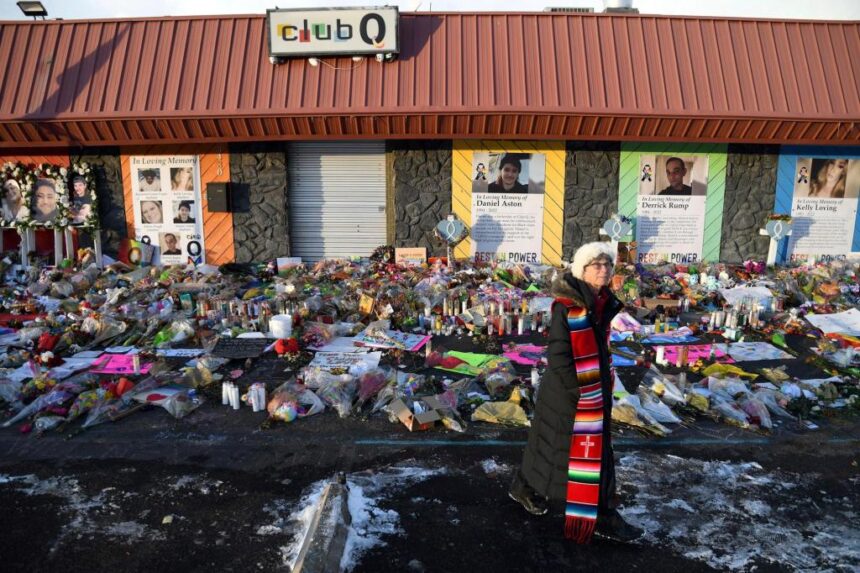Victims and mothers of those killed in the tragic mass shooting at an LGBTQ+ nightclub in Colorado Springs in 2022 have taken legal action by filing lawsuits. These lawsuits allege that the devastating murders could have been prevented if the sheriff’s office had utilized the state’s red flag law. The lawsuits come after clear warning signs were reportedly ignored, indicating that the gunman had intentions of committing violence.
Survivor Barrett Hudson, who still carries three bullets in his body from that fateful night, is among the plaintiffs in the two lawsuits. Other victims and relatives are also part of the legal action. They are set to address the media at a press conference on the two-year anniversary of the shooting at Club Q.
The lawsuits also target the nightclub’s owners, accusing them of reducing Club Q’s security detail from five or more individuals to just one in the years leading up to the shooting. It is alleged that profit was prioritized over the safety of patrons.
Both complaints highlight negligence and other allegations, stating, “Club Q advertised itself as a ‘safe place’ for LGBTQIA+ individuals. But that was a façade.”
A key aspect of the lawsuits is the failure of the El Paso County commissioners and the then sheriff to enforce Colorado’s red flag law, which allows law enforcement to temporarily confiscate firearms from individuals deemed a threat to themselves or others. The county officials and sheriff viewed the red flag law as an infringement on gun rights and actively resisted its implementation.
The lawsuits argue that authorities should have utilized the red flag law following the arrest of the gunman, Anderson Aldrich, a year before the tragic incident at Club Q. The victims of the shooting, including Raymond Green Vance, Kelly Loving, Daniel Aston, Derrick Rump, and Ashley Paugh, could potentially have been spared.
In 2021, Aldrich was arrested for allegedly kidnapping and threatening to kill his grandparents. He made alarming statements indicating his intentions and was found in possession of firearms, ammunition, bomb-making materials, and body armor. Despite these warning signs, all charges were dismissed, and authorities did not take action to remove Aldrich’s weapons.
The deliberate inaction of the authorities allowed the shooter to retain access to firearms, ultimately enabling the devastating attack on Club Q. The lawsuits individually allege negligence and wrongful death against the El Paso County commissioners and the former sheriff.
Aldrich, now 24, pleaded guilty to five counts of murder and 46 counts of attempted murder, receiving a life sentence in state court in 2023. Subsequently, he pleaded guilty to hate crimes in federal court and was sentenced to an additional 55 life terms in prison.
The legal proceedings shed light on the tragic events that unfolded at Club Q and aim to hold accountable those who could have potentially prevented the senseless loss of lives. The pursuit of justice for the victims and their families remains a focal point in the aftermath of this heartbreaking incident.






